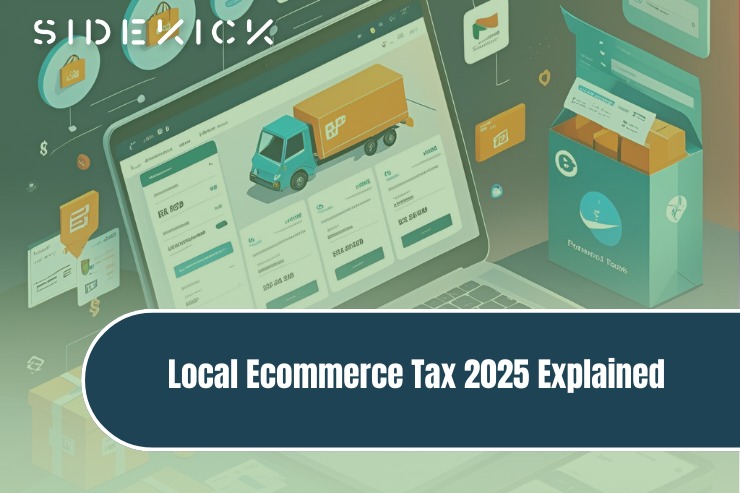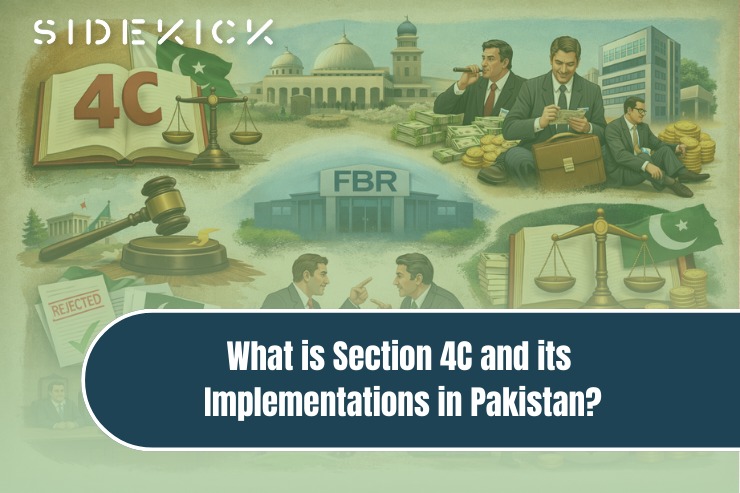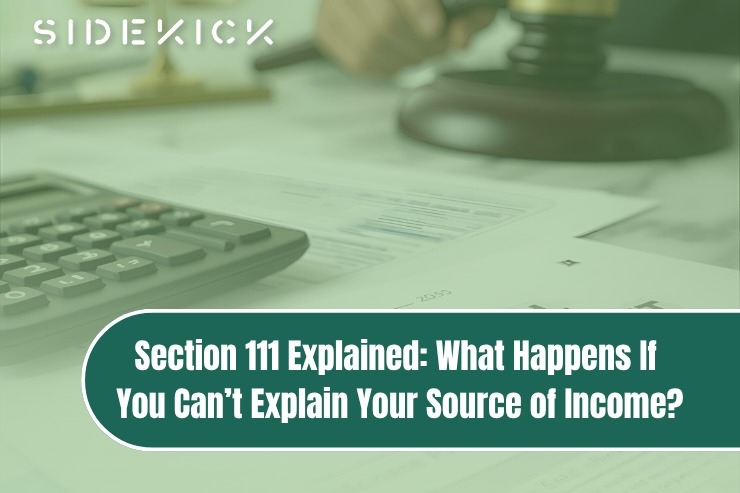In Pakistan, the prospect of e-commerce is rapidly evolving. The recent FBR notifications and Finance Act of 2025 have introduced a more precise and defined Local E-commerce Tax regime by making marketplace and payment intermediaries and couriers responsible for collecting and paying taxes at the source. The goal is to increase the tax pool, elevate the taxability of online sellers, and render tax collection viable in the online retail world.
The system has proposed added duties on intermediaries and courier services for collecting withholding and sales tax on online shopping, such as ordered products and services. It shows that there will be online platforms, gateways, banks, and couriers that settle online transactions and these platforms will collect the withholding tax before transferring funds to the seller, which is comparatively more convenient than following individual sellers after they have performed the transaction.
Income Tax Rates on E-Commerce Transactions
As falls under the Division IVA, payments in Pakistan made through e-commerce sites to facilitate the purchase of digitally ordered goods or digitally provided services have just defined tax rates. In case of payment made through digital media or banking facilities, the tax imposed is 1% on the amount up to PKR 10,000 and 2% above PKR 10,000 but not above 20,000 and a 0.25% rate on any amount above PKR 20,000. In the case of cash on delivery (CoD), tax percentage is 0.25 on electronic and electrical and 2% on clothes and accessories and 1% on any other goods.
Sales Tax on Online Purchase
To capture the sales tax base, the FBR tax on online purchase rules require banks, payment gateways, and couriers collect a small final sales tax on selected online purchases. Based upon certain classes of vendors (e.g. cottage industry/non-tier-I sellers), there is an indication in guidance that where final sales tax is to be received it should be on a 2% basis and that there are other (separate-provision) clarifications that indicate standard tax treatment (at 18%) on sales tax is to be adopted in other places, depending upon product/ service classification, and which SRO is applicable.
Are you sure you’re charging the right tax rate for local online sales in 2025?
Get in Touch
Fill out the form below, and we will be in touch shortly.
Collecting Agents and Their Responsibilities
According to the Finance Act of 2025, payment processors and marketplaces are the agents for tax collection. They are required to register sellers, withhold or collect the right and applicable amount of tax, deposit the tax monthly, issue withholding certificates, and file statements. Couriers who pay CoD are particularly identified as withholding agents in SRO 1429 (1)/ 2025 in case they pay the amount to sellers. Such a shift decreases leakage and makes accountability easier because withholding can occur only in some controlled locations instead of thousands of micro-sellers.
Impact on Digital Goods and Cross-Border Shopping
Pakistan’s digital economy not only focuses on domestic sales, but cross-border e-commerce is also gaining ground. It is crucial to highlight the impacts of taxing on e-commerce and sales tax on foreign e-commerce, concerning the fact thatthe Government imposes tax on online shopping. In order to execute the process of taxation of digital goods in Pakistan in a controlled way, the Ministry of Commerce and the Federal Board of Revenue have published necessary guidelines.
The Ministry of Commerce is in the process of finalizing its E-commerce Policy 2025-30, an ambitious roadmap that will lead Pakistan to become globally competitive in e-commerce. Its approach is lifecycle-driven and aims to improve all aspects, including merchant acceptance and online payments, as well as logistics and cross-border integration. This strategy is anchored in streamlining export procedures of small businesses and establishing a central governance model through the National E-commerce Council and its secretariat.
How Sidekick Can Assist in Your E-Commerce Tax Compliance
The new obligations in terms of Pakistan e-commerce tax and tax on online shopping in Pakistan have increased the legal responsibilities and tax reporting obligations with its platform-based withholding and collection of sales tax. The above challenges can be mitigated by tax consultancy services and tax compliance provided by Sidekick. Our specialists assist sellers in FBR registration of both NTN and GST, proper interpretation of laws to enforce precise withholding and sales tax on both online payments and cash on delivery payments, and correct reconciliation of withholding certificates to claim tax credits. Sidekick can help online merchants successfully evolve under the new Local E-commerce Tax in Pakistan, ensuring they maintain a smooth operational process and stay ahead of new policy changes, avoiding penalties by automating business processes and deploying the right legal expertise.
Conclusion
The Local e-commerce Tax switch in 2025 is one of the key compliance factors in the digital economy in Pakistan. It makes collection easy with a few numbers of agents (platforms, banks, couriers) and provides the seller with a definitive compliance route forward. However, this will lead to an increase in product prices and also necessitate rapid technological and process upgrades of the platforms on which the tax on online marketplace is imposed, as well as couriers and payment providers to ensure compliance.







